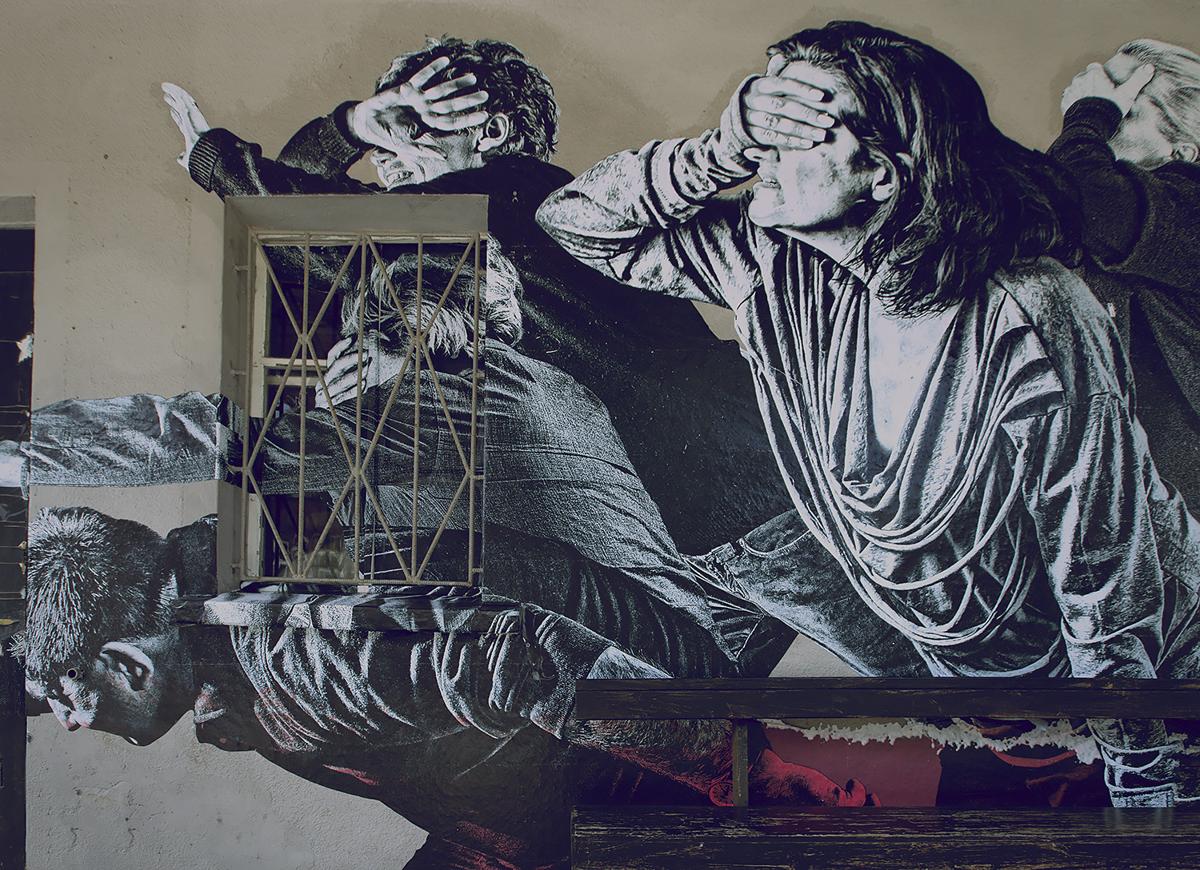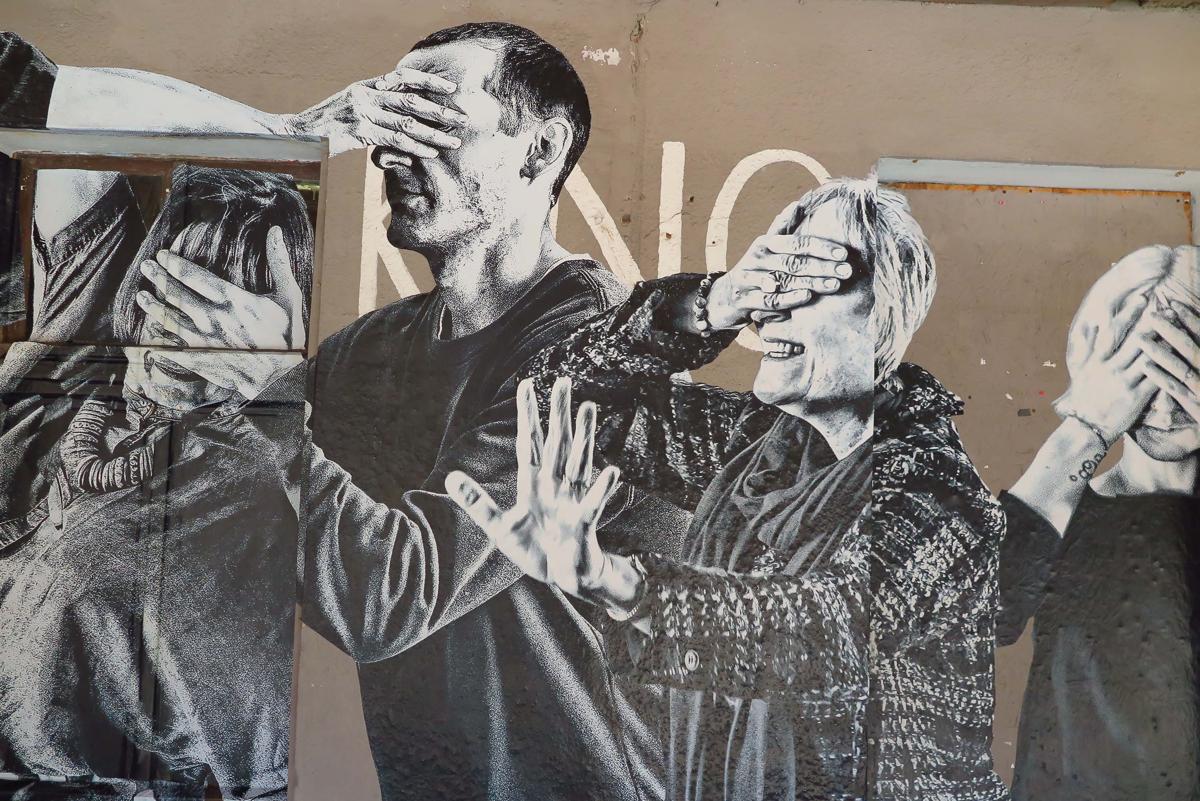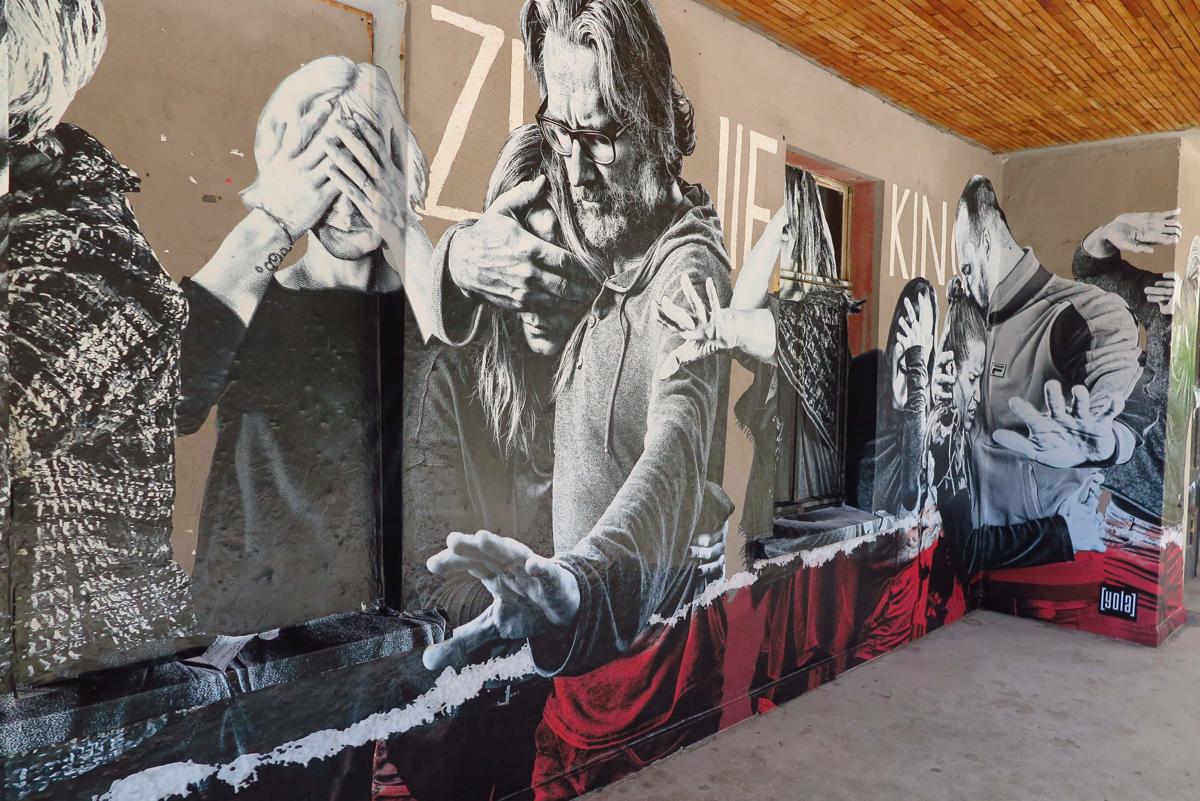December 7: Sins Confessed
♫ Music:
Day 5 - Thursday, December 07
Title: SINS CONFESSED
Scripture #1: Isaiah 59:9–15a (NKJV)
Therefore justice is far from us, nor does righteousness overtake us; we look for light, but there is darkness! For brightness, but we walk in blackness! We grope for the wall like the blind, and we grope as if we had no eyes; We stumble at noonday as at twilight; we are as dead men in desolate places. We all growl like bears, and moan sadly like doves; we look for justice, but there is none; for salvation, but it is far from us. For our transgressions are multiplied before You, and our sins testify against us; for our transgressions are with us, and as for our iniquities, we know them: in transgressing and lying against the Lord, and departing from our God, speaking oppression and revolt, conceiving and uttering from the heart words of falsehood. Justice is turned back, and righteousness stands afar off; for truth is fallen in the street, and equity cannot enter. So truth fails, and he who departs from evil makes himself a prey.
Scripture #2: Isaiah 63:17–19 (NKJV)
O Lord, why have You made us stray from Your ways, and hardened our heart from Your fear? Return for Your servants’ sake, the tribes of Your inheritance.Your holy people have possessed it but a little while; our adversaries have trodden down Your sanctuary. We have become like those of old, over whom You never ruled, those who were never called by Your name.
Poetry & Poet:
“A Shadow of a Great Rock in a Weary Land”
by John Hollander
Let him who is without light
Among you cast the first
Shadow, and let the worst
Among us here at our late
Hour now speak for the best:
There is nothing higher above
Our heads, and we whimper of
What once had been our boast.
When among all possessions
Knowledge, alone, is un-
Acknowledged to be one
Of our treasures or our passions.
Failing of wont and of will,
All we construct or construed
In neither sense holds true:
What can we still do well?
Bewail with an outraged heart
Infringements upon what
Is our Divine Right Not
To Have Our Feelings Hurt?
Not even that—the airs
And choruses of complaint
Are poorly intoned, and faint:
They fall on our own deaf ears.
Tell over the old tales
Of the hope from which we grew,
And our fading claims to be new
Now as some curfew tolls?
Not even that—in fear
Of singularity
Blockhead and airhead flee
Transports of metaphor.
Remember what we once were,
Even if too late to learn
How our fattening unconcern
Fed in the troughs of war?
Not even that—our boughs
Broke too soon, too soon
While an affable buffoon
Sang us his lullabies.
Sing in dumb unison—scared
Or ignorant of the joint
Divergence of counterpoint
In which true tunes are scored?
Not even that—our air
Amplifies voicelessness;
The silence of unsuccess
Sighs for all that we are
Still to contrive to succeed
In failing at; we play
At work and labor all day
At play, sad to be said.
Those principles we still
Assure ourselves that we
Keep though imperfectly—
The air of assent grows stale,
And harsh the voice of each claim.
Hope and distrust of hope
Are braided together in rope
—To hang ourselves with, or climb
Out of acedia’s pit?
There is no sign for us
In the ambiguous
Text of this bubbling pot
In which we seeth as a tame
Curl of smoke ascends
From the burning of candle-ends
That is the fire this time.
The fire that brings to a boil
A terror beyond all fears,
A broth of soured tears
Fills the horizon’s bowl,
Loud in such darkness, whether
Soon to be burnt or drowned,
Our dimmed noise and unsound
Light will come together.
SINS CONFESSED
The all-consuming reality of human fallenness requires several terms to describe it, terms that evoke images and pictures to express in words a thing that we sometimes hardly notice as present. Isaiah, our Poet-Prophet of Advent, echoes descriptions of human fallenness with terms used throughout Scripture: specifically, three Hebrew words translated as iniquity, transgression, and sin. Our English translation doesn’t quite capture the picture that each term evokes; together with Isaiah’s imagery, they vividly portray the depth of our need for Someone outside of ourselves to lead us into Light.
Avon, or “iniquity,” evokes an image of something that is crooked or bent. While an arrow or path may be described as avon, a troubled Psalmist writes that he is avah’d or “bowed down greatly” in mourning over his own sin (Psalm 38:6). Pesha, translated as “transgression” or “rebellion,” evokes a violation or betrayal of a relationship. In our passage today, Isaiah describes transgression as lying to and departing from God, as well as speaking oppression, revolt, and falsehood among one’s neighbors (59:13).
Khata, or “sin”, describes failure to hit a mark or goal. As created image-bearers, the mark we miss is failure to love God and failure to love others as created in the image of God. Khata is first used in Genesis 4:7, and is portrayed as a violent animal crouching at Cain's door, threatening to overtake him. Isaiah picks up on this image when he writes that “we all growl like bears, and moan sadly like doves” (59:11). Devastatingly, khata also involves self-deception, in which one’s ability to perceive truth or reality becomes distorted and bent: evil is called good and good evil, darkness is mistaken for light, and what is experienced as sweet is actually bitter. “Woe,” says Isaiah, “to those who are wise in their own eyes” (5:21).
Isaiah assesses the plight of his people in their iniquity, transgression, and sin as groping, stumbling, growling, moaning, transgressing, lying, intoxicated, justifying wickedness for personal gain, and even preying upon those who depart from evil. Kudela’s mural “Blind Leading the Blind” vividly captures Isaiah’s word-picture, in which hands cover one’s own eyes and the eyes of others, pushing back on what they do not want to truly see. This one grins, another grimaces; and another, it seems, simply can’t bear to look, and so refuses to do so. Kudela’s mural is accompanied by Hollander’s haunting chorus of voices that “Bewail with an outraged heart Infringements upon what Is our Divine Right Not To Have Our Feelings Hurt.”
At the start of this Advent season, these words, images, and sounds jar our forward-leaning hope for Christmas comfort and cheer. And, at the start of this Advent season, these words, images, and sounds press us to face the Darkness of our own self-deception, our own violation of relationship with God, others, and ourselves. Isaiah’s prophetic word, Kudela’s mural, and Hollander’s poem invite a recognition and reckoning of our own groping, stumbling, moaning, and self-justification. We can hardly perceive the brilliance of what will indeed come. But glory be: Immanuel is coming into our Darkness and will lead us into his Light.
Prayer
Lord, where am I covering my own eyes, shielding my own face from seeing the truth about the world around me or about me? How might I be perceiving light where there is darkness, tasting as sweet what is bitter, calling good what is evil? Spirit, help me recognize my own self-deception. As these dark, early days of Advent unfold, take my hand and lead me toward your healing Light.
Amen
Lisa Igram
Dean of Student Wellness
Biola University
For more information about the artwork, music, and poetry selected for this day, we have provided resources under the “About” tab located next to the “Devotional” tab.
About the Art:
The Blind Leading the Blind (3 views)
Mural
Yola Kudela
Zdrowie Cinema
Sokolowsko, Poland
About the Artist:
Yola Kudela is an award-winning Polish visual artist and mixed media filmmaker with twenty years of experience in the film and advertising industry. Kudela has worked on Oscar-winning productions such as Harry Potter, Narnia, and Tim Burton's Dark Shadows. She also works as an independent visual artist combining analogue media (large-scale murals, collages) and digital technology (video, VFX, and augmented reality). In addition, she has directed and produced independent short films and music videos, which have received a number of awards.
https://jolakudela.com/
About the Music:
Adagietto from “Paradise Lost” from the album Penderecki: Music for Chamber Orchestra
Lyrics: Instrumental
About the Composer:
Krzysztof Eugeniusz Penderecki (1933–2020) was a Polish composer and conductor. His best-known works include Threnody to the Victims of Hiroshima, Symphony No. 3, the St. Luke Passion, Polish Requiem, Anaklasis, and Utrenja. Penderecki's oeuvre includes four operas, eight symphonies, and other orchestral pieces, a variety of instrumental concertos, choral settings of mainly religious texts, as well as chamber and instrumental works. Penderecki studied music at Jagiellonian University and the Academy of Music in Krakow. After graduating from the Academy, he began his career as a composer in 1959. His Threnody to the Victims of Hiroshima for string orchestra and the choral work St. Luke Passion have received popular acclaim. In the mid-1970s, Penderecki became a professor at the Yale School of Music. Penderecki won many prestigious awards, including the Prix Italia in 1967 and 1968, the Wihuri Sibelius Prize of 1983, four Grammy Awards, the Wolf Prize in Arts in 1987, and the University of Louisville Grawemeyer Award for Music Composition in 1992.
https://en.wikipedia.org/wiki/Krzysztof_Penderecki
About the Performers:
Orchestra Sinfonia Varsovia with Conductor Albrecht Mayer
The Orchestra Sinfonia Varsovia was formed in April 1984 as a result of expanding the Polish Chamber Orchestra. Sinfonia Varsovia has played over four thousand concerts all over the world and made over three hundred records. Their recorded repertoire includes works from the eighteenth century to the present day. A special place in the orchestra’s concert program is occupied by the works of Polish composers, including Frederic Chopin, Krzysztof Penderecki, Ignacy Jan Paderewski, Witold Lutoslawski, Henryk Mikolaj Górecki, and Wojciech Kilar. Poland’s greatest contemporary composer, Krzysztof Penderecki, served as the orchestra’s musical director from 1997, and as its artistic director from 2003 to 2020. In 2008–2012, the music director of Sinfonia Varsovia was the world-famous French conductor Marc Minkowski. In 2004, Franciszek Wybranczyk passed the responsibilities of orchestra’s director on to Janusz Marynowski, his assistant and a long-time ensemble member, who holds the post to this day.
https://www.sinfoniavarsovia.org/en/
Albrecht Mayer (b. 1965) is a German classical oboist and conductor. The principal oboist of the Berlin Philharmonic, he is internationally known as a soloist and chamber musician and has made many recordings. Mayer began his professional career as principal oboist for the Bamberg Symphony Orchestra in 1990. In 1992, he joined the Berlin Philharmonic as principal oboist, a position he currently holds together with Jonathan Kelly. Mayer plays with ensembles of the Philharmonic, the Berliner Philharmonisches Bläserensemble, and the Berlin Philharmonic Winds Soloists, amongst other chamber music ensembles.
https://en.wikipedia.org/wiki/Albrecht_Mayer
http://www.albrechtmayer.com/
About the Poetry and Poet:
John Hollander (1929–2013) was an American poet and literary critic. At the time of his death, he was Sterling Professor Emeritus of English at Yale University, having previously taught at Connecticut College, Hunter College, and the Graduate Center, CUNY. He attended Columbia University. After graduating, he supported himself for a while writing liner notes for classical music albums before returning to Columbia University to obtain an M.A. in literature, and then a Ph.D. from Indiana University. Hollander stressed the importance of hearing poems out loud: "A good poem satisfies the ear. It creates a story or picture that grabs you, informs you and entertains you.” To Hollander, verse was a kind of music in words, and he spoke eloquently about their connection with the human voice. Hollander's poetry has been set to music by Milton Babbitt, Elliott Carter, and others, and in 2007 he collaborated with the rock band the Eagles, allowing them use of his poem "An Old Fashioned Song" to create the song "No More Walks in the Wood.”
https://www.poetryfoundation.org/poets/john-hollander
https://en.wikipedia.org/wiki/John_Hollander
About the Devotion Author:
Lisa Igram
Dean of Student Wellness
Biola University
Lisa Igram’s twenty years of experience in higher education includes a variety of curricular and co-curricular leadership experiences. She serves as Dean of Student Wellness at Biola University and adjuncts for Talbot School of Theology and Rosemead School of Psychology. Lisa is completing a Ph.D. in New Testament at the University of Aberdeen, focusing on the value of embodiment for spiritual growth.


